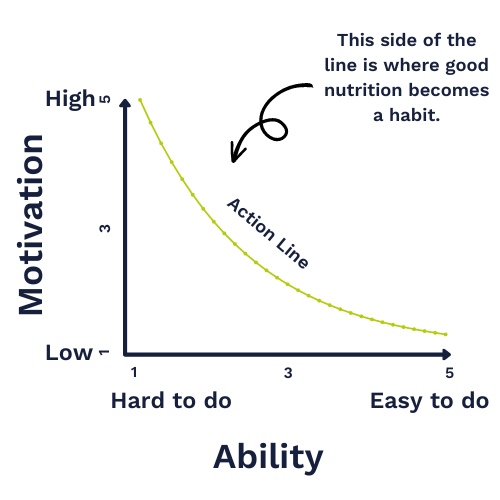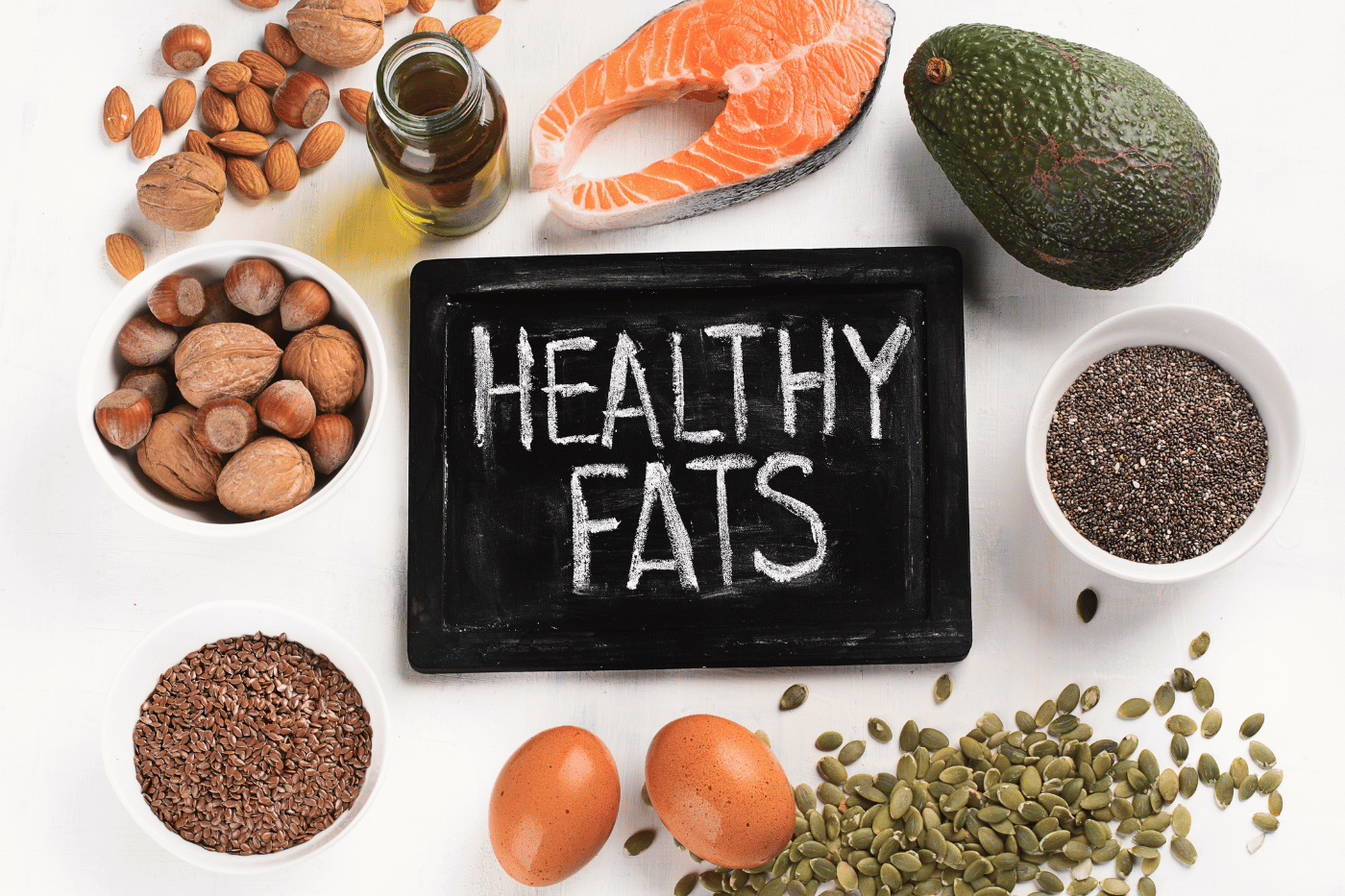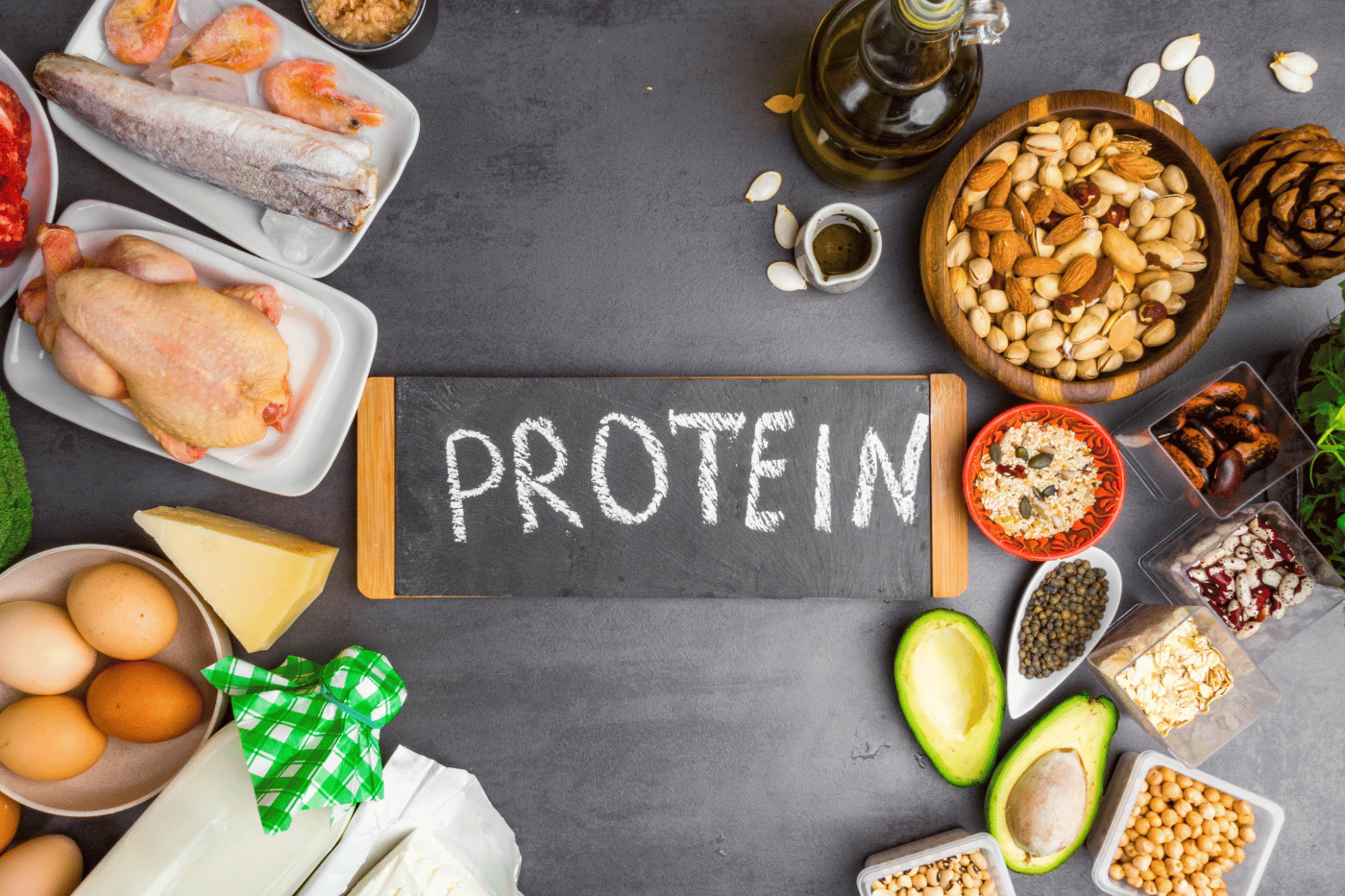How to lose weight… sustainably
Are you tired of fad diets and extreme workout routines that promise quick weight loss but leave you feeling drained and unmotivated?
If so, it’s time to shift your focus toward sustainable weight loss.
Sustainable weight loss is all about making small, consistent changes to your lifestyle that you can maintain in the long run.
With this approach, not only will you see results, but you’ll also feel happier, healthier, and more energised.
In this blog series post, we’ll explore some practical tips and strategies for losing weight sustainably and maintaining a healthy lifestyle. So, let’s dive in!

In this blog we’ll be looking at the following:
– Why Diets Fail and the Importance of Sustainable Strategies in Achieving a Healthy Lifestyle
– Bridging the Knowledge Gap: Empowering Individuals and Supporting Loved Ones Through Weight Loss
– The Basics of Losing Weight
How to Lose Weight Sustainably and Keep It Off For Good
Why Diets Fail and the Importance of Sustainable Strategies in Achieving a Healthy Lifestyle
Are you tired of feeling like you’re constantly on a cycle of dieting and then regaining the weight? This is a common experience for many people who have tried traditional diets, which often lead to unsustainable and unhealthy habits.
However, this sustainable weight loss blog series offers an innovative approach to explore weight loss, health, and wellness without the pressures of restrictive diets. By focusing on nourishment, self-care, and developing a healthy balance with food that works for you, this blog series can help you break away from rigid dieting principles.
In this first part of the blog series, we will delve into why diets fail and the importance of sustainable strategies in achieving a healthy lifestyle. By understanding the science behind why diets are often unsuccessful, you will be better equipped to make informed decisions about nutrition that suit your lifestyle and preferences.
Additionally, we will explore healthy strategies that do work for achieving a sustainable and enjoyable approach to weight loss and maintenance. With science-backed strategies and habit-based practical tips, you will be able to make meaningful changes that last long-term.
In part two of this blog series, you’ll get tips on how to approach food without feeling restricted. You’ll learn about intuitive eating and how to listen to your body’s hunger and fullness cues. We’ll also discuss the importance of including all types of foods in your diet and finding a balance that works for you.
Part three focuses on movement – learn how to incorporate it into your lifestyle in an enjoyable way and see how it contributes to weight loss goals. We’ll explore different types of exercise and how to find activities that you genuinely enjoy. Plus, we’ll dive into the Science behind how movement can not only help you lose weight but also boost your mood, energy levels, and overall health.
Lastly, in part four, we’ll dive into recovery – sleep and stress are two essential elements necessary for success with any health journey! Sports Massage can play a significant role in enhancing physical recovery and reducing stress, making your sustainable weight loss journey more manageable.
You’ll learn why getting enough quality sleep and managing stress levels are crucial for weight loss and overall well-being. We’ll provide you with practical tips for improving both areas of your life so that you can feel your best.
Before we dive deeper into the blog series, we wanted to take a moment to explain why we created this resource. As Personal Trainers and Physiotherapists, we noticed a significant gap in behaviour change training when it comes to helping people learn from their setbacks and change habits in a person-centred way. We believe that sustainable weight loss should be achievable and enjoyable for everyone, but unfortunately, many people struggle with fad diets and unsustainable approaches to wellness.
That’s why we created this resource – to provide helpful advice and guidance for anyone seeking to understand why weight loss is hard for so many people and how to make meaningful changes in a sustainable way.
Our team has helped hundreds of people lose weight sustainably at our private Personal Training facility, and we want to equip you with the tools you need to live your best life. We’re here to support you every step of the way and ensure that no one struggles alone. So let’s get started on this journey towards a healthier, happier you!
Bridging the Knowledge Gap: Empowering Individuals and Supporting Loved Ones Through Weight Loss
It’s no secret that the lack of accurate information on weight loss is causing a great deal of distress among those it affects – both individuals and their families and friends. Too often, this gap in knowledge leads to misunderstandings and misjudgments about weight loss, resulting in people judging each other unfairly.
This not only has an understandably negative impact on self-confidence and morale, but it can also contribute to less empathy and compassion in society.
Thankfully, with more awareness and education, we can bridge this knowledge gap and provide those trying to lose weight or those interested in helping other people to lose weight with science-based facts and principles rather than assumptions and fads.
At Health by Science, we believe that everyone deserves to live a healthy and empowered life. For those who are carrying an unhealthy amount of fat, this may well involve learning to lose fat in a way that isn’t restrictive and extreme.
To do this, we’ve pulled together a team of experienced coaches and subject matter experts to develop an innovative course aimed at equipping you with the knowledge needed to make positive changes during your weight loss efforts. We’re excited to be providing unique resources that will help you create healthy practices tailored to your individual lifestyle needs – so whether you’re trying to lose weight and keep it off or supporting someone else through this challenging change, Health by Science has got you covered!
And for the friends and family of those trying to lose weight, you have immense power to help your loved ones reach their potential. By learning the strategies from this course, you can create a nurturing relationship that supports the people you care about to be their best. With this influence that you hold, you are capable of facilitating personal growth and opening up possibilities that could be transformative not only for the life of an individual but also have far-reaching effects on the entire community.
When equipped with knowledge on how to empower people to lose weight, it is your duty to show support and use it for good!
It’s common to assume that the majority of people who are trying to lose weight have been doing so for a long time. However, it’s important to keep in mind that the vast majority of us in the UK have been or are trying to lose weight all or most of the time.
All in all, whether you’ve been trying to lose weight for years or just trying to lose some holiday weight, this course is for everyone facing this rite of passage in their lives!
The Basics of Losing Weight
If you’re trying to lose weight, it means that you’re trying to put your body into a calorie deficit. That means consuming fewer calories than you expend through everyday activities and maybe exercise. Sounds simple enough but of course we know it’s far more complex than that (see the diagram here to see just how complex!).
When trying to create a calorie deficit some people find tracking their nutrition with apps such as Macrofactor useful. At Health by Science we generally only use these tools for three days at a time to get a good understanding of someone’s nutrition before working on the individual habits that really matter.
When you are in a calorie deficit, your body will use your stored energy from fat, protein, and carbohydrates to fill the gap in your energy needs. Now ideally, we want the majority of the stored energy to be used from fats (because really we want fat loss, not just weight loss).
The problem with most diets is that they encourage people to reduce their calories too much which can lead to higher levels of stored energy from carbs and protein. When we use carbs (mainly stored in muscles) we lose water that’s stored with it. When our body uses protein, we lose muscle mass.
So although people may lose a lot of weight when they go on a diet (at least in the short term), this is often weight loss from water, carbs, and muscle loss, not just fat. From a psychological point of view, cutting calories too much can cause you to feel sluggish, irritable, and hangry! Not good when we’re trying to be the best version of ourselves.
Dieting can also be hard when it comes to social situations. Having to turn down food from friends or family, or feeling left out and alone when everyone else is indulging in tasty treats can all be difficult to navigate. It might feel like everyone is against you in your healthy eating journey, but the truth is that most people have experienced similar difficulties when trying to lose weight.
The problem with most diets is that they are so restrictive, they make social situations much harder to navigate. But it doesn’t have to be that way…
A habit-based approach to eating using the BJ Fogg’s Model is the most effective way to improve your diet and enjoy a healthy lifestyle (see image below). Rather than limiting yourself to strict diets that change lots of things all at once, take the time to focus on incorporating more nutritious foods into your lifestyle, one habit at a time.
This could mean swapping out processed snack foods for fruits and vegetables or removing added sugar from your favorite beverages. All of these little changes add up over time, making it easier to reduce poor-quality food choices in the long run.
With this approach, you won’t feel so restricted and can still enjoy tasty treats without feeling guilty. When it comes to restrictive diets, you need to be super motivated 24/7, but that kind of consistency just isn’t realistic. Instead, focus on making small, simple changes that are easier to stick with and equally as effective. So as you can see, there is a reason why most (often highly restrictive) diets consistently fail you, with all the physical, psychological, and social challenges that come with it. However, the most important thing to remember is that every person’s experience of trying to lose weight in their life is unique.
There’s no single game-changing formula that works for everyone. No hormone-balancing hacks. No quick-fix diets or special training schedules. No new drug or supplement regimen.
In this blog series, we’ll help you create your personalised plan based on your lifestyle and preferences. And when you come back tomorrow, we’ll explore nutrition topics including why eating more, not less, maybe the mindset shift you need; why focusing on the quality of what you eat may be just as important as the quantity of what you eat, and what to eat some, more, and less of.
How to Lose Weight Sustainably and Keep It Off For Good






